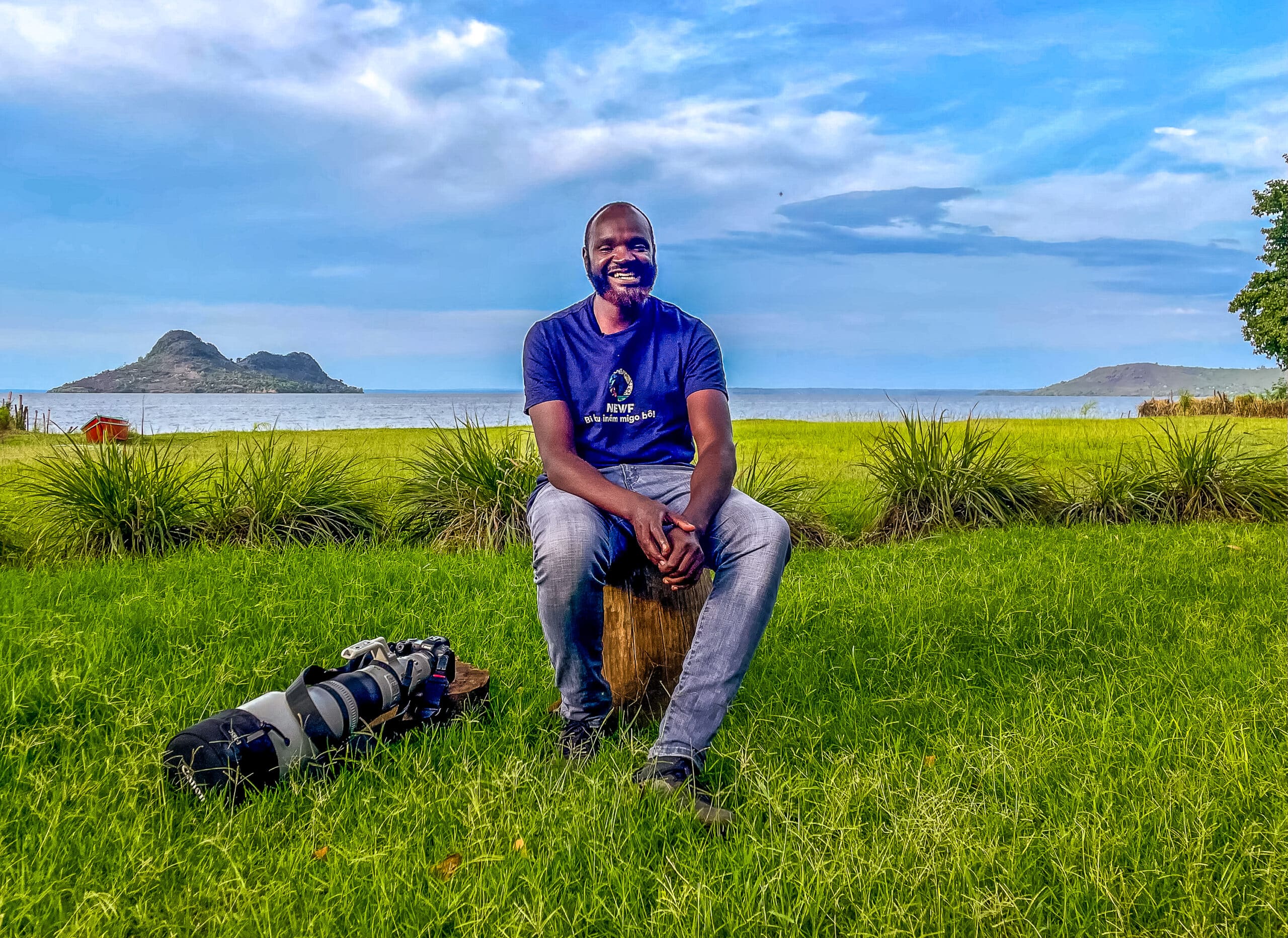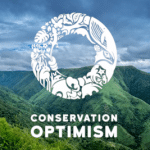Have you ever wondered how conservationists spend their days or what keeps them optimistic about the future of nature? Do they always spend their time in the distant wild, or might they be hidden all around us? Do their roles encompass aspects we never thought of?
“Meet The Optimists” is a monthly blog series by Conservation Optimism which introduces conservationists working in different fields and contexts to our readers. We discuss their journeys into conservation, typical daily activities and reasons for hope.
Read on for the inside story on different careers and fresh approaches to conservation!
In the May 2023 blog of Conservation Optimism’s “Meet The Optimists” series, Anthony Ochieng gives us a peek at his life as a wildlife photographer, communicator and educator.
Anthony Ochieng Onyango, also known as TonyWild, started the foundation of the same name in 2016 to share conservation stories to inspire young people through photography into conservation action. Growing up on Rusinga Island in Lake Victoria, he went through a life-changing moment when he saw his first elephant at the age of 23 years old while studying Wildlife Management. His passion for wildlife is unwavering, and his lifetime commitment is to share the importance of wildlife with the world. Through photography, he aims to inspire people to take action in conservation.
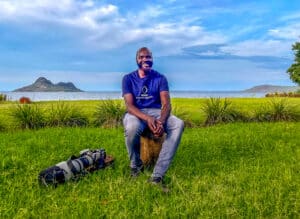
Anthony Ochieng. Photo courtesy of CNN
Can you trace the origins of your interest in conservation and what led to your current work?
My journey toward conservation has multiple origins that have shaped the work I do today. It all began with my early experiences visiting Nairobi National Park as a child. I distinctly remember encountering a fascinating creature—a big lizard with four legs. My curious young mind couldn’t resist counting its legs, unaware at the time that it was a Monitor Lizard.
This and many other encounters with wildlife left a lasting impression on me. I would eagerly return to school and express my fascination by drawing the magnificent animals I had seen. Among all the creatures, the male lion was my favourite subject, and I would excitedly share my drawings with my deskmate. This deep connection with nature sparked a desire within me to become a leader in conservation.
As I progressed through school and university, my focus remained steadfast on wildlife. I dedicated my career to their study and protection, making a lifelong commitment to supporting wildlife conservation in every aspect of my life.
What does a typical day of work look like for you?
My workdays are a unique blend of diverse responsibilities as the founder of TonyWild. Mornings are devoted to administrative tasks, where I respond to emails and actively seek potential partners who share our vision of an ambitious education program. I also dedicate time to developing captivating photo storyboards for upcoming assignments.
The other half of my day takes me out into the field, where I immerse myself in capturing captivating images of wildlife and the inspiring individuals involved in conservation efforts. These moments in nature fuel my passion and allow me to visually document the beauty of our natural world.
When I’m not behind the lens or engaged in administrative tasks, I prioritise supporting my team members in coming up with ideas and funding strategies as they conduct impactful environmental education programs in schools. Together, we strive to ignite a sense of wonder and inspire the next generation of environmental advocates. Every day brings new adventures and opportunities to make a difference, and I am grateful to be able to blend my passion for photography, conservation, and education in my work.
What is your favourite and least favourite aspect about your role?
My favourite aspect? Engaging with young minds, igniting their passion for photography, and empowering them to be wildlife conservation ambassadors. Seeing their creativity bloom is truly inspiring!
My least favourite aspect? The constant pursuit of funding for our education program. But hey, if you know someone who shares our vision and can help us make a difference, I’d be thrilled! Together, let’s dream of an ecosystem where wildlife conservation and the people working to protect wildlife and wild places thrive, and support never runs dry.
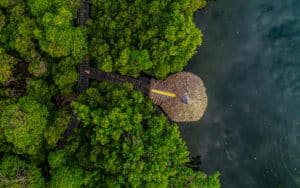
Photo Courtesy of Anthony Ochieng
As a conservationist, what makes you hopeful about the future?
Every day, I strive to share diverse approaches and innovative solutions that inspire others to take action. From raising awareness about the people protecting endangered species to promoting sustainable practices such as the use of solar lights within my community in Rusinga Island, the potential for positive impact is immense. As many people awaken to the intricate web of life, the collective will to protect our natural world strengthens.
What helps you stay positive day-to-day?
Being optimistic about conservation is characterised by my personal goal and dreams of seeing people in the world appreciate the conservation of nature and natural habitats. You have to be selfless, committed, resilient, and demonstrate the spirit of intentional action to support your desired goals. To be honest, it’s not easy; a number of times, I want to quit, but the legacy on my vision dream board keeps me going despite the challenges.
Could you share a story about a formative moment in your conservation career?
I have had quite a number of them, but one that stands out for me today is working with rangers across the country during Wildlife Ranger Day. Sharing their passion and commitment to conserving nature is way beyond me, and I felt inspired by every moment I spent with the rangers. The assignment not only enabled me to meet awesome people but also some images enable me to win a couple of awards and notably the Benjamin Mkapa Photography Awards 2023
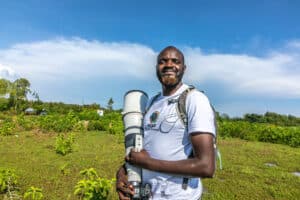
Anthony Ochieng. Photo courtesy of CNN.
Any advice for someone interested in pursuing your field of work?
Immerse yourself in the field by studying wildlife conservation, photography techniques, or environmental science. Equip yourself with knowledge and skills to understand and capture the essence of the natural world. Seek opportunities to work or volunteer with conservation organisations, wildlife photographers, or environmental initiatives. This hands-on experience will provide invaluable insights and help you build a strong foundation. Use your images to raise awareness, evoke emotions, and inspire action for wildlife conservation. Connect with like-minded individuals, conservationists, photographers, and organisations in the field. Stay resilient and adaptable, embracing the ups and downs of the journey. Your passion and determination will drive you forward, even during difficult times. Remember that every action, no matter how small, can contribute to wildlife conservation. Use your photography and storytelling skills to educate and inspire others.
Explore more of Anthony’s work here!

